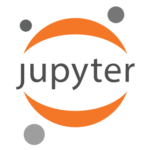Introduction to Data Science
The Skyline Data Science course combines three perspectives: inferential thinking, computational thinking, and real-world relevance. Given data arising from some real-world phenomenon, how does one analyze that data so as to understand that phenomenon? The course teaches critical concepts and skills in computer programming and statistical inference, in conjunction with hands-on analysis of real-world datasets, including economic data, document collections, geographical data, and social networks. It delves into social issues surrounding data analysis such as privacy and design.
Prerequisites
NONE
Materials & Resources
Our primary text is called Computational and Inferential Thinking: The Foundations of Data Science. This text was written for the course by a team of course instructors.
The computing platform for the course is hosted at Berkeley data8. In order to use 2i2c JupyterHub from UC Berkeley, you need to sign up with your smccd.edu account HERE >>
Support
You are not alone in this course; we are here to support you as you learn the material. It’s expected that some aspects of the course will take time to master, and the best way to master challenging material is to ask questions. For questions, use Piazza. We will also hold virtual office hours for real-time discussions.
Summer 2024 – Math 211
Envisioning a Data Science Pathway at Skyline College.
Data science, an emerging and continually evolving interdisciplinary STEM field with roots in statistics, mathematics, and computer science, gives us the opportunity to rethink curriculum, pathways, pedagogy, and technology in the name of (1) increasing access and (2) removing barriers to STEM degrees and careers (Cobb, 2015).
Live lecture and lab sessions will be held on Monday, Tuesdays, Wednesdays,s, and Thursdays from 2:10 pm to 3:40 pm Pacific time over Zoom. These lectures will be used to highlight and review vital concepts of the course. Accompanying notebooks with examples will typically be provided to students. Recordings of these sessions will be provided, though students are highly encouraged to attend in real-time.
The weekly lab session consists of a lab assignment that develops skills with computational and inferential concepts. These lab assignments are a required part of the course and will be released on Monday nights.
Weekly homework assignments are a required part of the course. You must complete and submit your homework independently, but you are allowed to discuss problems with other students and course staff.
Homeworks will be released on Monday after the lecture and due the following Monday night..
Data science is about analyzing real-world data sets, and so you will also complete three projects involving real data. On each project, you may work with a single partner. Both partners will receive the same score.
The midterm exam will be held on July 10. Please note the date and time carefully.
The final project presentation is required for a passing grade and will be held on the week of July 24 Please double-check your course schedule to ensure you have no conflicting finals.
Grades will be assigned using the following weighted components:
| Activity | Grade |
|---|---|
| Lab | 20% |
| Homework | 20% |
| Projects | 15% |
| Midterm | 15% |
| Final project | 30% |
Grades for homework, Projects, and Labs will be posted about 1 week after the assignment’s due date. It is up to you to check the solutions and request a regrade request before the regrade deadline. Any regrade request past the deadline will not be looked at; this is to enforce the same deadline across all students, so please do not delay in reviewing your work.
Late submissions of labs will not be accepted under any circumstances. The same goes for homework unless you have relevant collage accommodations filed with the DSP office.
Your two lowest homework scores, your two lowest lab scores, your two lowest vitamin scores, and your two lowest discussion attendance scores will be dropped in the calculation of your overall grade. There will be no alternate due dates for assignments missed due to illness, other commitments, and so on. The drops are intended to cover those situations.
Projects will be accepted up to 2 days (48 hours) late. Projects submitted fewer than 24 hours after the deadline will receive 2/3 credit, and projects submitted between 24 and 48 hours after the deadline will receive 1/3 credit. Projects submitted 48 hours or more after the deadline will receive no credit.
We encourage you to discuss course content with your friends and classmates as you are working on your assignments. No matter your academic background, you will learn more if you work alongside others than if you work alone. Ask questions, answer questions, and share ideas liberally.
If some emergency takes you away from the course for an extended period, or if you decide to drop the course for any reason, please don’t just disappear silently! You should inform me and your project partner (if you have one) immediately so that nobody is expecting you to do something you can’t finish.
You must write your answers in your own words, and you must not share your completed work. The exception to this rule is that you can share everything related to a project with your project partner (if you have one) and turn in one project between the two of you, and if you are attending a lab session and have a lab partner you can share everything related to that lab with your lab partner.
Make a serious attempt at every assignment yourself. If you get stuck, read the textbook and go over the lectures and lab discussion. After that, go ahead and discuss any remaining doubts with others, especially the course staff. That way you will get the most out of the discussion.
It is important to keep in mind the limits to collaboration. As noted above, you and your friends are encouraged to discuss course content and approaches to problem-solving. But you are not allowed to share your code or answers with other students. Doing so is academically dishonest, and it doesn’t help them either. It sets them up for trouble on upcoming assignments and on the midterm exam.
You are also not permitted to turn in answers or codes that you have obtained from others. Not only is such copying dishonest, but it also circumvents the pedagogical goals of an assignment. You must solve problems with the resources made available in the course. You should never look at or have in your possession solutions from another student or another semester.




Contact